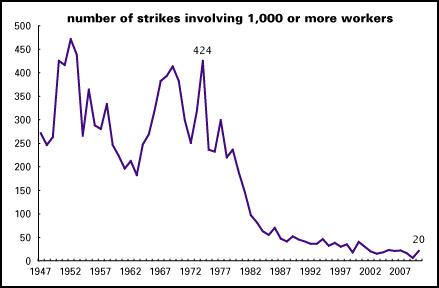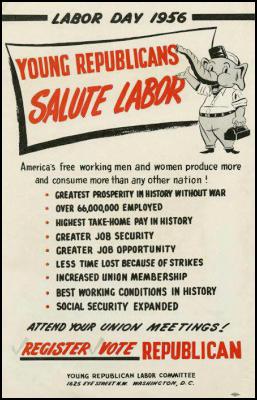Column – Undernews
In the past three and a half years, more than 90 D.C. police officers — from detectives to captains to the rank-and-file cops on the street — have been arrested. They’ve been arrested on charges ranging from to child pornography to murder.
Undernews: September 10, 2012
Since 1964, the news while there’s still time to do something about it
THE PROGRESSIVE REVIEW
90 DC cops arrested in last four years
In the past three and a half years, more than 90 D.C. police officers — from detectives to captains to the rank-and-file cops on the street — have been arrested. They’ve been arrested on charges ranging from to child pornography to murder.
Israeli officials simmer down about Iran after meeting with US aides
Anti-War – After being briefed by top US military officials, the two top Israeli leaders that have been pushing for war on Iran suggested Obama’s hardline postures and militarism in the Middle East may have eliminated the need for a preemptive Israeli strike on Iran.
It’s private, not public, debt that’s the problem
The study shows that excessive private debt is a much more accurate and consistent predictor of financial crisis than the amount of public debt.
Romney’s Medicare program will cost 48 year olds an extra $125,000 over their lifetime
One in six student borrowers have defaulted
In all, nearly one in every six borrowers with a loan balance is in default. The amount of defaulted loans $76 billion is greater than the yearly tuition bill for all students at public two- and four-year colleges and universities.
A terrifying way to discipline children
According to national Department of Education data, most of the nearly 40,000 students who were restrained or isolated in seclusion rooms during the 2009-10 school year had learning, behavioral, physical or developmental needs, even though students with those issues represented just 12 percent of the student population. African-American and Hispanic students were also disproportionately isolated or restrained.
How melting ice speeds up climate change
Morning Line: The most important political story of the moment
Progressive Review – The most important political story of the moment is the Chicago Teacher’s strike. It is most dramatic expression of working class rebellion against both Republican and Democratic policies we’ve seen in years.
Here are just a couple of indications of this. First, a chart:

Second, a tweet from the teacher’s union: “Teachers went into 63rd street police station to use bathroom and got a standing ovation from police.” At the same time, a check of the union’s list of supporters included not one major Democratic, liberal or progressive non-union organization. So now we have cops more in the liberal tradition than the people who call themselves by that name.
As we have argued over the past few decades, the problem on the left is largely due to its desertion of the basic economic issues that created the New Deal and the Great Society. Increasingly driven by a grad school elite willing to dismiss its former basic constituency as just a bunch of bible-thumping, racists idiots, the Democratic Party has systematically destroyed its own base of support.
The Chicago teachers’ strike offers liberals a chance to reform and rebuild themselves.
Lying our land away
Sam Smith
Among the tasks of a journalist used to be to tell people when public officials were lying. The other day I had to admit that this might no longer be the case as I worked on an item about a politician’s fib and the editorial side of my brain suddenly interrupted to point out that, given the quantity of such stories these days, this particular one was not significant enough to be worth reporting. In other words, political dissembling had become so prolific that lies were now in the news category of rainstorms, something of little journalistic interest unless they knocked down trees, flooded basements or delayed rush hour traffic.
This perception was further confirmed listening to some of the speakers at the Democratic convention. I had earnestly noted GOP dishonesty in recent weeks and was prepared to relax and enjoy some well hewn counter arguments. Instead I found myself watching what seemed like MSNBC on steroids, which is pretty bad since MSNBC already sounds as though it’s on steroids. Listening to the crowd cheering excessively at each nugget of hype even began to make me feel a little frightened. The sound was not that of dynamic debate but of a mindlessly obedient audience urging on doctrinal lecternal excess, a scene that brought back memories of history’s far grimmer examples.
But didn’t, for example, Bill Clinton tell the truth? After all, the fact checkers said so, those strange new creatures providing what blogger Atrios described as, “the weird spectacle of journalists effectively arguing that the truth isn’t really their beat.”
The problem is that, as advertising agencies learned long ago, the facts can be correct yet the story still be false.
For example there are the facts one decides not to tell. In Clinton’s case this would include his signing of the Glass Steagall act and other major contributions to the current fiscal crisis.
As I wrote some time back, “Although the media and liberals rarely recognize it, Bill Clinton played a major role in creating the current financial crisis. His signing of the repeal of the Glass-Steagall Act – which regulated banks for six decades – was one of the most damaging decisions made by a president in modern history.”
And historian Ralph Bauer noted,
Just days after the administration (including the Treasury Department) agrees to support the repeal, Treasury Secretary Robert Rubin, the former co-chairman of a major Wall Street investment bank, Goldman Sachs, raises eyebrows by accepting a top job at Citigroup as [CEO Sanford] Weill’s chief lieutenant…
When Bill Clinton gave that pen [at the signing] to Sanford Weill, it symbolized the ending of the twentieth century Democratic Party that had created the New Deal. Although the 1999 law did not repeal all of the banking Act of 1933, retaining the FDIC, it did once again allow banks to enter the securities business, becoming what some term ‘whole banks.’…With the stroke of a pen, Bill Clinton ended an era that stretched back to William Jennings Bryan and Woodrow Wilson and reached fruition with FDR and Harry Truman.”
Of course, beyond this we have the extraordinary corruption of the Clinton years which liberals and the media continue to ignore or deny. At the convention Clinton was hailed as an American hero. Is that an honest way to describe someone whose record includes being the only president ever impeached on grounds of personal malfeasance, the one with the most number of convictions and guilty pleas by friends and associates, the most number of cabinet officials to come under criminal investigation, and the most number of witnesses to flee country or refuse to testify just to name a few items a responsible press might have mentioned in discussing Clinton.
They might also have mentioned his role in getting NAFTA passed and damaging public welfare for the poor.
There was much other matter at the convention designed to create an impression with little relation to reality. No, Joe Biden, Barack Obama did not create 4.5 million jobs; he only helped, and in to a degree that can not be defined by math. What’s the difference between “We built it” and “We created them?”
Narcissism can be as big a distortion as a direct lie. To create a fictional world in which everything good is the result of one man’s action may not be a technical falsehood but is far from the truth.
The excessive autobiographical justifications of and by speakers got so bad that I wanted to replace all of them with, from the descriptions at least, their clearly better mothers. And while it was nice for the vice president to become so emotional over the deaths of American veterans, it would have been helpful if the media at least had asked how many of the lives could have been saved if the foreign policies of Biden and others hadn’t been so terrible.
The scariest moment in the whole week came when Mayor Antonio Villaraigosa of Los Angeles announced that the delegates had just approved the reinsertion of the supposedly sanctified place of Jerusalem and God into the party platform. Without a hint of irony, Villaraigosa declared that two thirds of those present had approved the change, something the simplest sound meter would have shown to have been false.
What was scary was to watch Villaraigosa lie so easily in front of millions of Americans and not have anyone say a mumblin’ word.
Now some may be rightfully thinking that the lies of the Republicans have been far worse. True, but this is a pretty low standard. After all, you expect a crook to act like a crook. You expect your supposed ally to act like one.
It seems, however, that our whole culture now accepts as normal a level of dishonesty, exaggeration and propaganda that once would have repelled it. Which is one reason TV shows like Newsroom and Good Wife are so appealing; they look into a contemporary world in which people supposedly on the same side at a TV network or law firm no longer trust each other.
We also find it every day in a journalism that has come to think of messages as more important than actions and that judges these messages by their cleverness rather than their integrity.
As for students, the NY Times reports:
In surveys of high school students, the Josephson Institute of Ethics, which advises schools on ethics education, has found that about three-fifths admit to having cheated in the previous year – and about four-fifths say their own ethics are above average. Few schools “place any meaningful emphasis on integrity, academic or otherwise, and colleges are even more indifferent than high schools,” said Michael Josephson, president of the institute.
While it is true that we have always had lying politicians, we mainly forgave or tolerated them based on their actions and not how cute they looked on a platform.
The father of modern political propaganda was Joseph Goebbels who once said, “Think of the press as a great keyboard on which the government can play.” The more we imitate his values in the use of language the more we risk creating political monsters who imitate policies his language supported.
To be sure, we are still far from there, but don’t forget that we have lost more civil liberties since 9/11 than in the whole rest of our history combined.
As Rosencrantz in Tom Stoppard’s Rosencrantz & Guildenstern Are Dead, said:
There must have been a moment, at the beginning, when we could have said — no. But somehow we missed it. . .
There is still time for us. But it’s running out.
Down East notes: The ghost ship of Harpswell
Sam Smith – Maine is one of the few places that still remembers the War of 1812. As Wikipedia explains:
British army and naval forces from nearby Nova Scotia captured and occupied the eastern coast from Eastport to Castine, and plundered the Penobscot River towns of Hampden and Bangor. Legitimate commerce all along the Maine coast was largely stopped¬a critical situation for a place so dependent on shipping. In its place an illicit smuggling trade with the British developed, especially at Castine and Eastport. Claims to “New Ireland” were finally dropped in the Treaty of Ghent, and Castine was evacuated, although Eastport remained under occupation until 1818. But Maine’s vulnerability to foreign invasion, and its lack of protection by Massachusetts, were important factors in the post-war momentum for statehood.
To celebrate the 200th anniversary some of us gathered near Porter’s Landing in South Freeport on Casco Bay to listen to a program of nautical ballads. The spot was near where the privateer Dash had been built, of which the Freeport Historical Society notes: “With seven voyages under four captains taking fifteen prizes, she was one of the most successful privateers of the War of 1812. Her record was never equaled.”
For me, it was a vessel of more than distant history. In 1975, I had been sitting next to my mother at Sunday lunch with my family. She looked out at sea and said to no one in particular, “Oh look, there’s the ghost ship of Harpswell.” My reaction was to think, there she goes again. And then to think no more about it.
A few hours later, down on the shore, my father had a heart attack and died. As we returned from the hospital and parked the car, my mother suddenly cried, “The ghost ship of Harpswell.” “You’re right,” I said, because now I remembered, too.
We went inside and pulled out a volume of John Greenleaf Whittier’s poems and found it. The ghost ship of Harpswell had been the privateer Dash, which had been lost at sea after compiling its remarkable record. It would be later said that women saw the vessel just before their husbands died, but would make nothing of it. Whittier called it The Dead Ship of Harpswell:
And men shall sigh, and women weep,
Whose dear ones pale and pine,
And sadly over sunset seas
Await the ghostly sign.
They know not that its sails are filled
By pity’s tender breath
Nor see the Angel at the Helm
Who steers the Ship of Death.
My mother’s vision of the Dash was not the only one. Recounts Jill Stefko in Suite 101:
In August, 1942, while the U.S. and the British His Majesty’s Navies patrolled the Atlantic Coast, a siren sounded in Casco Bay, Maine a warning that there was an invasion. A blip had appeared on ships’ radar screens in the protected waters. Homer Grimm and his girlfriend were enjoying the afternoon on Punkin Nubb at the time.
Pandemonium broke loose. Gongs sounded, guns were readied and sailors and soldiers ran to battle stations. The HMS Moidore sped out of Cumberland Cove, firing its big gun as it came. One shell landed on Punkin Nubb a few yards from where the couple was. They looked around the corner of a shattered rock ledge to see a schooner sailing past them. Homer realized it was the Dash and could see sailors on her deck.
In the distance, the HMS Moidore, US Navy and Coast Guard vessels were pursuing her, heading toward Freeport. When the military’s ships were ready to converge upon the phantom schooner, she vanished.
The Dash is far from the only maritime legend of island-studded Casco Bay. In the lower corner of the bay is Portland, one of the east coast’s great natural harbors, with a channel deeper than that of Boston, Philadelphia or New York. During World War II, the Navy formed transatlantic convoys and moored as many as 60 vessels off Portland. The islands provided a natural barrier to storms and enemy subs, with anti-submarine netting strung between them completing tto complete the task.
The Atlantic coast was far more dangerous than Americans realized. Years after the war it would be revealed that in the first months 46 merchant ships were sunk off the east coast. Another 126 would be sunk before the war was over. And Portland was among the first targets for U-boats after war was declared. At least three U-boats were sunk near Casco Bay – one five miles southeast of the Portland sea buoy, one off Small Point and the other seven miles off Halfway Rock after being spotted by shore gunners on Bailey’s Island.
On April 23, 1945 – as Stephen Puleo describes in Due to Enemy Action – the 200 foot USS Eagle was sunk less than five miles southeast of Cape Elizabeth by U-853. Thirteen of the crew survived only to be informed by Navy officials that the sinking had been caused by their ship’s boiler having exploded and thus they were not entitled to the Purple Heart. It was not surprising the Navy wanted to cover up the cause; after all the war was almost over and no naval vessel had yet been lost off the New England coast.
The U-boat story even came closer to home than that. Emily Rhoades lived part of the war on Bowman’s Island. One night, around midnight, she went out to get some water at the well. Standing by the well was a man all dressed black including a black mask. He put his finger to his mouth and pointed her back to the house. There was little doubt about how he had gotten there.
On May 5, the captains of U-boats received word from Berlin that they were to surrender. The commander of one wrote later, “Henceforth we would be able to live without fear that we had to die tomorrow. An unknown tranquility took possession of me as I realized that I had survived. My death in an iron coffin, a verdict of long standing, was finally suspended.”
The commander of U-853, however, either did not get the word or chose to ignore it. That afternoon he sank a freighter off Point Judith, RI commencing a chase that ended with the sub on the ocean floor with all crew members dead.
A day later, the war was formally over.
It would take over a half century of dogged effort, however, for the survivors of the USS Eagle sinking to finally receive their Purple Hearts for an incident the Navy hadn’t wanted to admit had occurred.
Action notes
November 14-18 – State of the Black World Conference II in Washington DC
Recovered history

Click for big version.
POLITICAL LOUDMOUTH
Race to the bottom
Taxes owed R Kelly owes over $6 mil
*************
Content Sourced from scoop.co.nz
Original url


